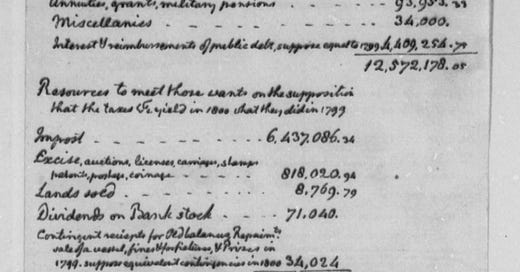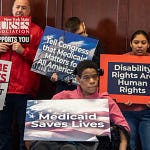“How many times must a man look up
Before he can see the sky?
Yes, ’n’ how many ears must one man have
Before he can hear people cry?
Yes, ’n’ how many deaths will it take till he knows
That too many people have died?”
Blowin’ in the Wind, Bob Dylan
Listen to “His Bobness” sing the full song here.

The words “moral document” have been used plenty of times before to refer to our budget, and most times that use has been focused on how our country allocates funds to help our poorest, versus the money to fund, say, our defense budget. This year, as we finally move to upgrade our traditional infrastructure, and fund “human infrastructure” by expanding our paltry social safety net to catch up with the rest of the industrialized world, and finally tackling climate change, it is crucial that we view these bills and the overall budget as a reflection of our country’s moral values. Remember those?
When I use the word “moral” I don’t necessarily mean values derived from organized religion, because I don’t believe you have to practice a religion to have a moral compass, and of course, our country has no central religious tenets. But I certainly welcome any derivation of values inserted into the budget making process.
In fact, it has been many of our country’s religious leaders who have most strongly advocated for more government intervention and help for the poor; in recent memory, the Rev. Dr. Martin Luther King, Jr. announced his Poor People’s Campaign, in late 1967 at a staff retreat for the Southern Christian Leadership Conference:
“…to plan for an initial group of 2,000 poor people to descend on Washington, D.C., southern states and northern cities to meet with government officials to demand jobs, unemployment insurance, a fair minimum wage, and education for poor adults and children designed to improve their self-image and self-esteem” (King, 29 November 1967).
A half century later, the Rev. Dr. William J. Barber II, a minister and civil rights leader and the Rev. Dr. Liz Theoharis, a theologian, united to resurrect Dr. King’s Poor people’s campaign:
“They are aiming to redefine what constitutes a “moral agenda” in politics. Many on the right frame it in narrow terms of opposition to abortion and same-sex marriage. By contrast, the poor people’s campaign’s sprawling agenda includes issues like wages, health care, immigrant rights, gay and transgender rights, criminal justice reform, and clean water and air.”
While most elected officials seem to barely acknowledge these protests, it doesn’t hurt to take a glimpse at who some of our legislators do pay attention to—and it is exactly who you think and why—just follow the money trail:
Senator Joe Manchin of West Virginia has accepted over $400,000 in campaign donations in the last quarter from the fossil fuel industry, although not from coal, but from the oil and natural gas industries. And he is adamantly opposed to the provisions of the Reconcilation Bill which would create and incentivize the Clean Electricity Performance Program (CEPP) to phase out the use of fossil fuels. At the moment, it looks like this program has been cut from the bill altogether, on Manchin’s insistence.
And Senator Kyrsten Sinema of Arizona refuses to allow any tax increases on wealthy individuals or wildly successful corporations to help pay for the expanded safety net and climate change programs in the Reconciliation Bill. One of the key measures pushed by progressives and originally included in this bill is allowing Medicare to negotiate drug prices, and other measures to lower the price of prescription drugs. Predictably, lobbyists and CEO’s of the pharmaceutical industry have unleashed hundreds of lobbyists to fight this provision because, well, why would they want lower drug prices?
Her Senate campaign also had prolific fundraising numbers the last two quarters, even though she, like Manchin, is not up for re-election until 2024. Sinema received a generous $27,800 from pharmaceutical company PACs and thousands more from Pharma CEO’s.
I’m singling out Senators Manchin and Sinema because they are the only two Democratic senators insisting on slashing the original $3.5 billion budget package as much as they can wrangle, and their slashing seems to correlate with the campaign donations they each receive. The other 48 democratic Senators apparently are on board with the full $3.5 billion spending package. None of the Republican Senators or Republican House members will consider voting for this human infrastructure bill. Even though I can’t prove a direct causation between the donations these particular lawsmakers receive and their votes, it may help to at least know this information, and if the dots can be connected, all the better.
We probably each have our own definition of morality, and examples for ideas or acts that are moral or immoral. And it is subjective. But the United States is at least one of the richest countries on Earth, and yet we allow over 37 million of our people to live in poverty, and nearly 11 million of those are children—that’s one in seven children living in poverty in this country. So is it an immoral act to say, for example, that our budget should not include more money to help the poor in the form of direct aid, housing vouchers, food, and jobless benefits, and to affirmatively state, like Senator Manchin, that extra government funds to eliminate this suffering will lead to “an entitlement society”? And does leaving that money out of our nation’s budget make the budget an immoral document? I agree with those who would say “Yes”.
What’s your opinion on these issues? Let me know in the comment section below.
If you like this piece, why not share it with your friends…
And if you are not already on the free list or a paid subscriber, why not sign up now?
Additional Reading:
Economic Policy Institute: Moral Policy = Good Economics
Budget Reconciliation: The Basics
Library of Congress, Federal Budgets: Understanding the Past














Share this post